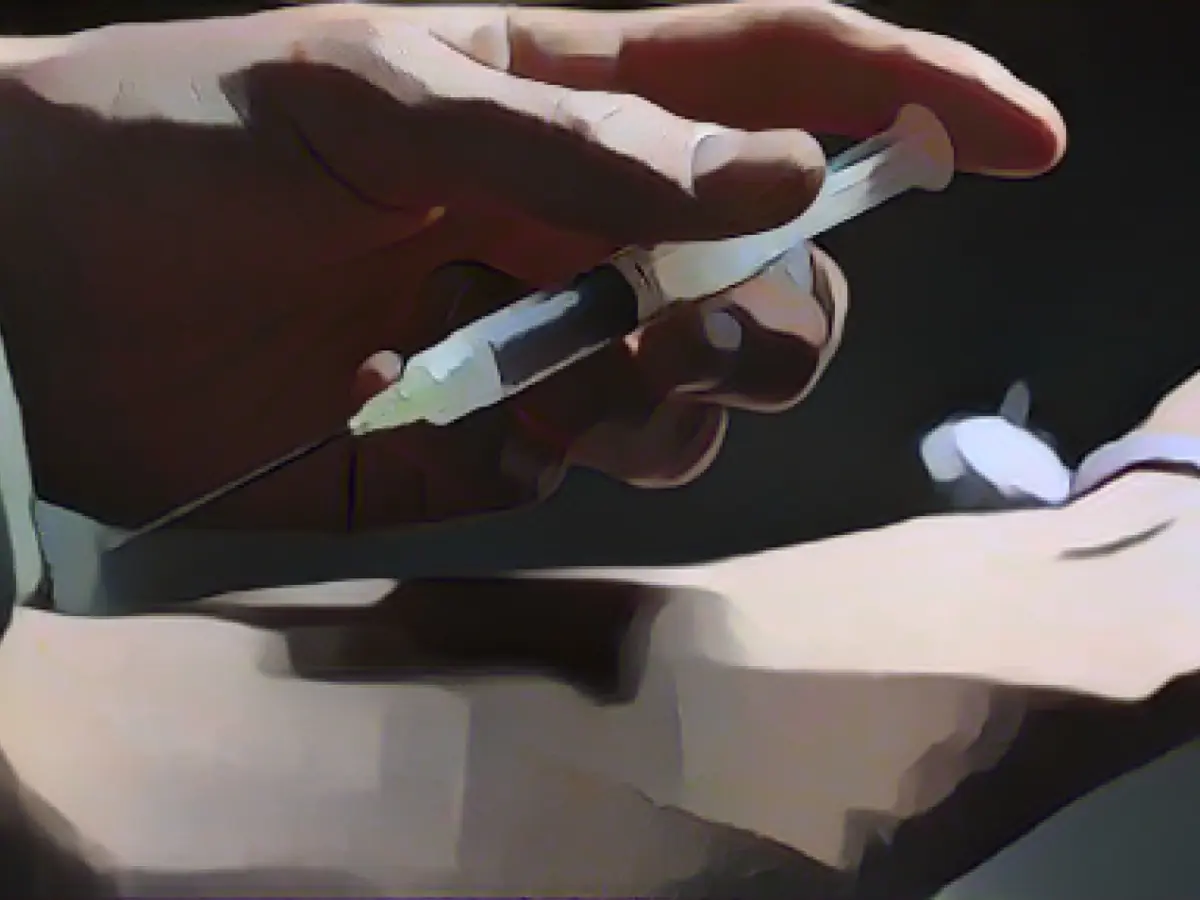Health - Medication instead of drugs: Few doctors care for addicts
According to practitioners, there are too few doctors in Saxony-Anhalt who treat addicts and provide them with substitute medication. Although enough substitution doctors are being trained, many are not working in this field, said Peter Jeschke, Chairman of the East German Working Group for Addiction Medicine. Around 20 to 25 doctors take part in further training each year, but only 12 to 15 are actually working in substitution practice across the country. "And they are not evenly distributed," complained Jeschke.
Halle and Bernburg have large practices, Magdeburg does not. In some regions, there are no substitution doctors at all, Jeschke reported. In the south of the state, in Naumburg, Weißenfels and Zeitz, there is no such contact point. This is the Burgenland district.
And in the neighboring district of Mansfeld-Südharz, addiction counselor Johannes Schöneck from Eisleben also describes a lack of care. Although the search for doctors via the Association of Statutory Health Insurance Physicians shows doctors who are qualified to provide substitution treatment, to his knowledge all but one of them have refused to accept patients. An experienced doctor had handed over his practice at the turn of the year, where the majority of substitution patients had been treated. "They had to change practices, either to Halle or Könnern."
Colleagues from other addiction counseling centers reported waiting times of several weeks for a treatment place. Schöneck criticized that it was not really possible to speak of comprehensive care.
The Association of Statutory Health Insurance Physicians, which is responsible for providing care, sees things differently: according to them, there are currently 32 doctors working in Saxony-Anhalt who provide substitution services. "The doctors are distributed regionally and work in a total of 24 practices," explained a spokeswoman. "The distribution of doctors also reflects the residences of the affected patient clientele. In the past, the demand could be met by the substituting doctors." If necessary, inquiring patients would be referred to the appropriate practices.
The Ministry of Social Affairs also emphasizes that the data from the substitution register does not show a nationwide shortage for 2022. As of July 1, 2022, substitution drugs had been prescribed for 798 reported patients. The number of reported substitution patients per 100,000 inhabitants was 37 in Saxony-Anhalt. In Bremen there were 250, in Hamburg 218 and in Berlin 158.
But it is not only doctors and addiction counselors who see problems in Saxony-Anhalt. The "Freie Straffälligenhilfe", a charity that helps prisoners to reintegrate into society, identifies the lack of substitution doctors as one of the main problems, along with a lack of housing. "Substitution treatment started in prison offers a relapse-preventing perspective and actually helps clients to get a grip on their addiction problems," according to the latest annual report. With regard to the shortage of substitution doctors, it goes on to say: "As a result, clients do not continue substitution treatment once it has begun, which leads to relapse into addiction and often also into criminal activity."
The majority of substitution patients are heroin users, as addiction counselor Johannes Schöneck explains. They are supplied with substitute medication. However, clients who are dependent on synthetic opioids or pain medication can also be substituted. Patients often also have psychiatric side effects.
But why are so few substitution doctors practicing? Peter Jeschke from the East German Working Group for Addiction Medicine sees no problem with payment and the further training also works. It is more about image. Many psychiatrists and doctors are hostile and dismissive of the principle of "substance for substance" because the end result is not abstinence, but a substitute. Addiction and drugs are still considered a "dirty corner" and have a negative stigma. Jeschke pointed out that the topic of addiction plays virtually no role in medical training, with 90 minutes being spent on the subject during the six-year course, although the topic affects over 20 percent of the population.
The aim must be to integrate the treatment of addicts into everyday medical practice - substituted drug addicts alongside senior citizens with dementia and other patients, said Jeschke, who is himself a practicing addiction doctor in a group practice in Halle. After all, it's not just about the classic junkies, but about a variety of addictions that move in the triangle of "calming down, getting going and having special experiences".
With a view to the future, the Association of Statutory Health Insurance Physicians explained that the shortage of doctors does not stop at substituting doctors. "The average age of the group of doctors authorized to substitute is also high. Almost half of these doctors will be 65 or older in 2030." For this reason, it is necessary to recruit young doctors in the field of addiction medicine. In cooperation with experienced addiction doctors, various formats are used to inform medical students and doctors in further training about the work of addiction doctors and in this way promote the field of addiction medicine.
East German Working Group on Addiction Medicine
Read also:
- Quiet roads despite persistent frost and snowfall
- Brandenburg expands help for reading and writing problems
Source: www.stern.de








